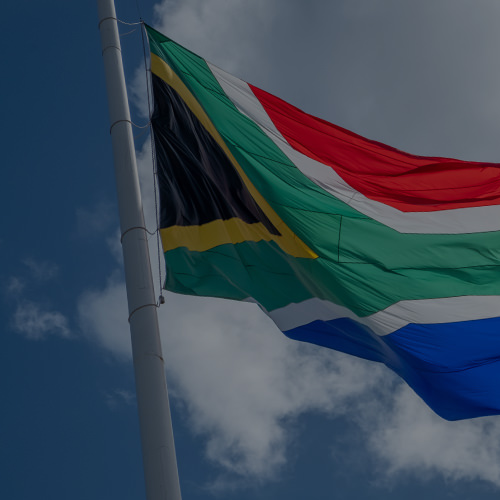Last year, Anchor rolled out the slogan that would describe our business in only two words – Navigating Change. These words are especially pertinent at the moment as we deal with change on a heretofore unprecedented level. These major changes investors are experiencing at present are ones I deal with daily – health and wealth. I once worked for probably the best distribution manager SA has ever seen, who always used to say: “People spend their health creating their wealth, then spend their wealth maintaining their health.”
This paradox seems even more salient now, given the health crisis our country is facing as the COVID-19 pandemic sweeps across the globe. People are finally starting to fully understand that our relationship to our health should be proactive and not reactive. The same can be said about our financial health. It’s been cited in numerous case studies around the world that many families are one salary away from being bankrupt. For many, it is most often a
function of current economic models that are not the inclusive panaceas we were led to believe, where money would ‘trickle down’ from the upper class to the workers. In fact, wealth inequality around the world has shown an alarming increase – Thomas Piketty’s brilliant work, Capital in the Twenty-First Century, makes this point quite forcefully. We are now seeing this disconnect even further with a virus that is literally destroying the poor and the vulnerable in front of our very eyes.
My job as a wealth manager/financial advisor is quite simple but can also be fairly complex at times. However, my main objective is to ensure that I help grow clients’ ‘pot’ of money which these clients will need when they retire. You can grow that ‘pot’ in various ways:
Save each month into a pension, provident fund, retirement annuity (RA), tax-free savings account, unit trust, endowment or share portfolio, to name but a few available investment vehicles.
You can inherit wealth through your family – either in your own name or through a trust.
You own a business that pays out the proceeds of profit in the form of dividends.
Those are just a couple of examples of how people navigate their way to this end goal of retiring comfortably. I don’t think anyone will be resentful of the fact that our fellow human beings should be entitled to at least this bare minimum – whether they are rich or poor. Below, I highlight two examples of two different individuals at both the beginning and at the end of this spectrum in order to illustrate the job of a financial advisor and how we are critical to clients’ outcomes for financial health.
My first example is a young 26-year old female who approached me around saving for her retirement. She has no assets other than a car and no investment savings. She earns around
R23,000/month net and can afford c. R1,000/month into either an RA (if she wants to get the tax deduction for the contribution) or a tax-free savings account (if she wants liquidity with no constraints on how she invests at retirement).
I calculated that, should she want to retire on 60% of her current salary (in present value terms or, simply put, in today’s money), she would need to save an additional R4,300/month. Clearly, she cannot afford this right now. In fact, she works as an occupational therapist and is completely reliant on seeing clients, which she cannot do when the country is on lockdown due to the COVID-19 virus. How is she going to save towards the R5.8mn pot of money she needs to retire comfortably?
My second example is far more sombre. I visited a gentleman in his early 70s at his retirement village in Benoni. His total assets were around R438,000 – this was his pot of money that was supposed to sustain him until he passed away. Below, is the email I sent him after our meeting:
- We worked out that your minimum monthly expenses are about R5,050/month.
- If we paid off your credit card debt of R7,000, reduced your credit card payments of R320/month and then cancelled DSTV, we could get your monthly income needs down to around R4,300/month.
- For the purposes of the calculation, I worked on a monthly income amount of R4,500, increasing by 3% p.a.
- If we get a return of between 6% to 8% on your investments, then we can help preserve capital until you are around 80-81 years of age.
- The crucial aspect is to keep costs as low as possible, draw the minimum monthly income that we need and thereby achieving the long-term growth targets for your funds.
I found out early this year that this gentleman had passed away. At the time of our meeting, sitting in his small, cold place in Benoni, he recalled his wife’s passing and those of most of his neighbours. It was heart-wrenching that I had to take a surgical knife to his expenses, just so that he could survive.
The point of the above two stories shows the simple, yet complex, job that advisors deal with on a regular basis with their clients. We must advise clients on how to grow their pot of money and then, once they have grown it, how to preserve it so that it provides them with an income for life. Increasingly, we encounter situations like the two highlighted above that, alarmingly, are in serious jeopardy of not achieving financial health.
When this is the case, there are a few ways in which we can assist clients, at least in terms of daily cash-flows issues, to bring down expenses and allocate more resources towards savings and the protection of their current lifestyle.
Make sure you keep a budget – I’m frankly amazed at how many people don’t monitor their everyday spending. This is the easiest way to identify where and on what you are spending frivolously.
Reassess your medical aid plan. The most common query I get these days is whether a client should be downgrading their plan. The answer is most often a resounding ‘Yes’.
Don’t rack up debt on your credit card. This may sound like common sense advice, but I personally know people with over R200,000 of debt on their credit card, with no hope of ever paying this back. At interest rates of 16% to 22%, why would any reasonable person do this?
Financial advisors and wealth managers arguably play an even more important role in their clients’ lives now as we navigate the 21-day shutdown, the likes of which we may never see again in our lifetimes. I personally know of businesses either shutting down or putting people on two days a week contracts, not to mention the thousands who have lost their jobs (the sad news of Edcon going bankrupt filtered through the news recently). Should we now be advocating that schools introduce a curriculum on financial literacy for our kids, so that they are aware of how to avoid the pitfalls of poor financial health?
It’s not simply about whether we pick the right stocks or funds to help grow your retirement pot; it’s also about helping you make smart financial decisions in your everyday lives. Our business has one of the most diverse and knowledgeable skill sets in SA. You may have an inter-vivos (living) trust that might be unnecessary and costly to run each year. Perhaps you have three life policies that could be consolidated into one policy, where we can save you thousands of rand each month. You are healthy and never claim for day-to-day medical expenses, so we assist you in downgrading your medical aid plan, once again realising significant savings each month. You’ve just sold your business and are looking to retire, so we can assist you in doing a cash-flow analysis and help you invest so that you never deplete your capital, thereby leaving a legacy for your family. Paying provisional tax and need assistance – we can refer you to our in-house tax practitioner.
Now, more than ever, clients need sound financial advice from trusted advisors who can cast their net far and wide over every facet of your financial life, so that we ensure your health and wealth for years to come. In so doing, we don’t just assist your family and yourself but also broader society. With the world waking up to a new reality as the COVID-19 virus sweeps across the globe, a heightened sense of community will hopefully be borne out of this pandemic. At Anchor, we hope that we can be there to assist you in navigating these changing times.




